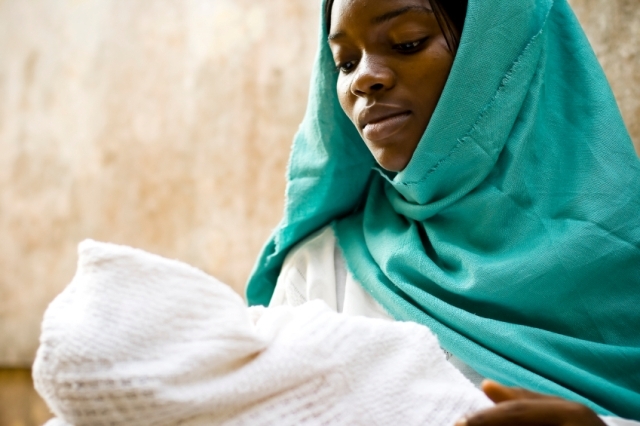The work in Tanzania started in July 2004 and it is still ongoing.
News from new facilitators, November 2025
Gunnar Eide from the Fo association for social workers in Norway has been responsible for the project in Tanzania since 2015 and he explains about the situation in 2023:
“The training of ICDP facilitators took place at four separate occasions, each time a new group of facilitators was formed. Currently there remain around 40 active facilitators and their work is spread out over the whole region. Over the years, only two trainers were engaged, Egla Matechi and Verynice Fredrick from Moshi. They conducted workshops that formed ICDP facilitators. However, now there is a need for more trainers who could take some of the burden from Verynice and Egla. The ICDP coordinating team has been searching for talented facilitators to take the next step to become trainers and they have come up with a group of nine candidates. There was a meeting with all the candidates in Tanzania in the summer of 2023, and they are now well prepared for taking part in the trainer level training, which will start in January 2024.”
2021: “In 2021, we were not able to perform ICDP well, due to the difficult time caused by the spread of COVID-19. Unfortunately, training online here proved to be impossible to organize – mainly because there are no facilities in the villages. The positive news is that I attended a workshop on Child Protection Policy and I plan to incorporate this knowledge in the ICDP sensitization and training of parents, as well as of caregivers and children’s workers. I sometimes received an invitation to prepare a group as ICDP facilitators outside my work place, and in this way I managed to spread ICDP. In 2022, the training of 12 new facilitators from four districts, will be undertaken, and this process will be continued in 2023.” – ICDP trainer, Verynice Fredrick.
September 2020 certification workshop
ICDP with young people in Tanzania
Early developments: In 2004, ICDP established cooperation with the University of Bergen and the University of Dar es Salaam on a psychosocial project in Moshi, Kilimanjaro region. The local partner was Kiwakkuki, a women’s organisation working with matters related to HIV/AIDS. Kiwakukki decided to implement the ICDP program in the region in order to strengthen the caregiver’s ability to fulfil the children’s psychosocial and developmental needs.
The project is targeting caregivers of orphans, mainly due to the HIV/Aids-crisis. The training of 19 women and 1 man started in July, and the whole group was accredited as ICDP facilitators in February 2005. The training also included the specific challenges related to caring for children suffering from trauma and loss. In November 2005 there was a follow-up of the group who had all implemented the program with groups of caregivers. According to their reports there had been great changes in attitudes and behaviour in caregivers who benefited from the ICDP programme.
In October 2006 follow up training was given to 21 facilitators in a week long workshop. After the workshop participants carried out their practical work with caregivers and children.
During 2007 the ICDP trained facilitators and caregivers absorbed the ideas of positive interaction with great speed, enthusiasm and joy and the local good caring practices have been revived and adapted to current challenges.
In 2008 a workshop was held in Moshi attended by thirteen candidate trainers. ICDP Trainer Diplomas were issued to 3 persons so far that completed their training: Luililiaeli Mfangavo, Egla Matechi and Vernynice Monyo. Abandonment of corporal punishment of children has been one the most frequently reported outcomes of participation in the ICDP projects. The community leaders are asking for ICDP to expand as they see positive changes in their community.
2009: A group of 21 persons became ICDP facilitators and 12 received diplomas as trainers. Trainers are able to form new groups of facilitators, thus spreading the ICDP methodology to others.
According to the survey conducted with children and caregivers, including teachers, about the effects of the intervention, caregivers learned to share experiences with one another, to speak and to “open up”. The ICDP training increased the participants’ demonstrations of love and their use of praise with the children. They learned that using a stick is not as good as hugging, talking and praising, that giving love enables children to accept discipline and behave better. They also learned that including children in planning makes them more eager to participate.
2010 – 2012: Training continued and 12 trainers and 129 facilitators were formed; 98 community leaders from 55 villages attended ICDP sensitization workshops. Through the community leaders, many villagers received information on ICDP and were interested to join the ICDP meetings and gradually 990 caregivers and 3854 children were reached with the ICDP method. The ICDP material was translated into Kiswahili.
Local ICDP trainers Verynice Monyo and Lui Mfangavo organized network meetings, which were conducted in four districts: Moshi municipal, Moshi rural west, Moshi rural east and Mwanga. The aim was to link the new group of facilitators who are just starting their training with the more experienced group. In all 4 districts the experienced facilitators shared about their achievements and challenges in using the ICDP programme, and in addition they talked about the positive impact of the programme in their personal lives. Their stories illustrated how as result of ICDP there are improvements in caregivers’ attitudes and behaviour towards their children and also positive changes in children’s behaviour. The majority of parents realized that involving children in planning makes them more eager to participate and that the conventional wa of ‘using a stick’ is not as effective as hugging and talking.
In 2012 two local ICDP trainers started the Haydom project, with the aim of training new ICDP groups in the Manyara Region. The initiative is in consultation with the Sorlandet hospital in Norway. It is coordinated by the Haydom hospital administrative assistant. A group of 13 have received training to become ICDP facilitators.

